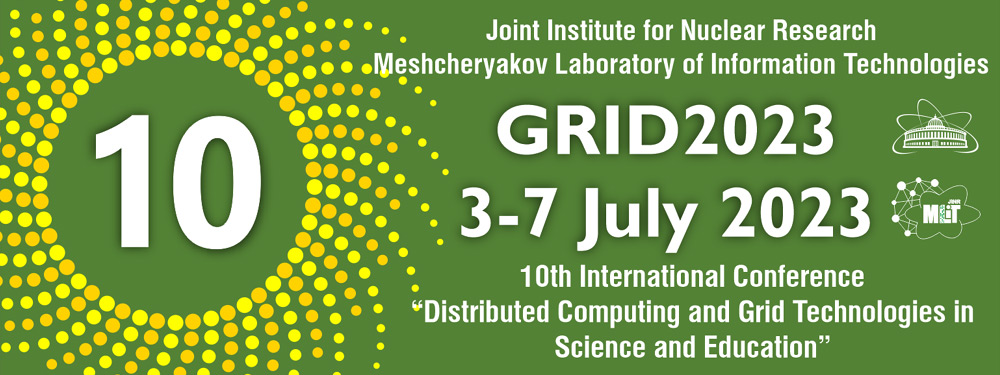Speaker
Description
Modern scientific research requires the utilization of advanced computing systems, software tools, and data analysis and visualization tools. Currently, there is significant interest in studying spintronic nanstructures such as superconductor/ferromagnet (S/F) hybrids and their potential for controlling magnetic properties using superconducting currents. This research direction promises substantial reduction in energy consumption of such devices and their potential application in quantum information processing and superconducting spintronics. Investigations into the topological properties of magnetic and phase dynamics, as well as hybrid nanstructures, offer alternative approaches to information processing by employing novel carriers of information such as magnetic skyrmions and Majorana bound states. Solving equations that describe the dynamics of such structures requires the utilization of heterogeneous computing systems and specialized software tools.
To address these needs, a platform based on Jupyter Binder technologies has been developed. It is a cloud-based platform that allows running Jupyter notebooks in a web browser without the need to install any additional software on the local device. This modern, user-friendly, and continuously evolving tool is designed for researchers, developers, and data processing specialists who wish to collaborate on projects and share their work. Jupyter notebooks are interactive documents that contain program code, equations, visualizations, and descriptive text. They can be written in multiple programming languages, making them a versatile tool for data analysis and scientific research. Jupyter notebooks are highly popular among researchers and developers due to their simplicity and ease of use, as they enable running code and viewing results directly within the document. Additionally, users can easily share notebooks and collaborate with others by publishing their notebooks online.

